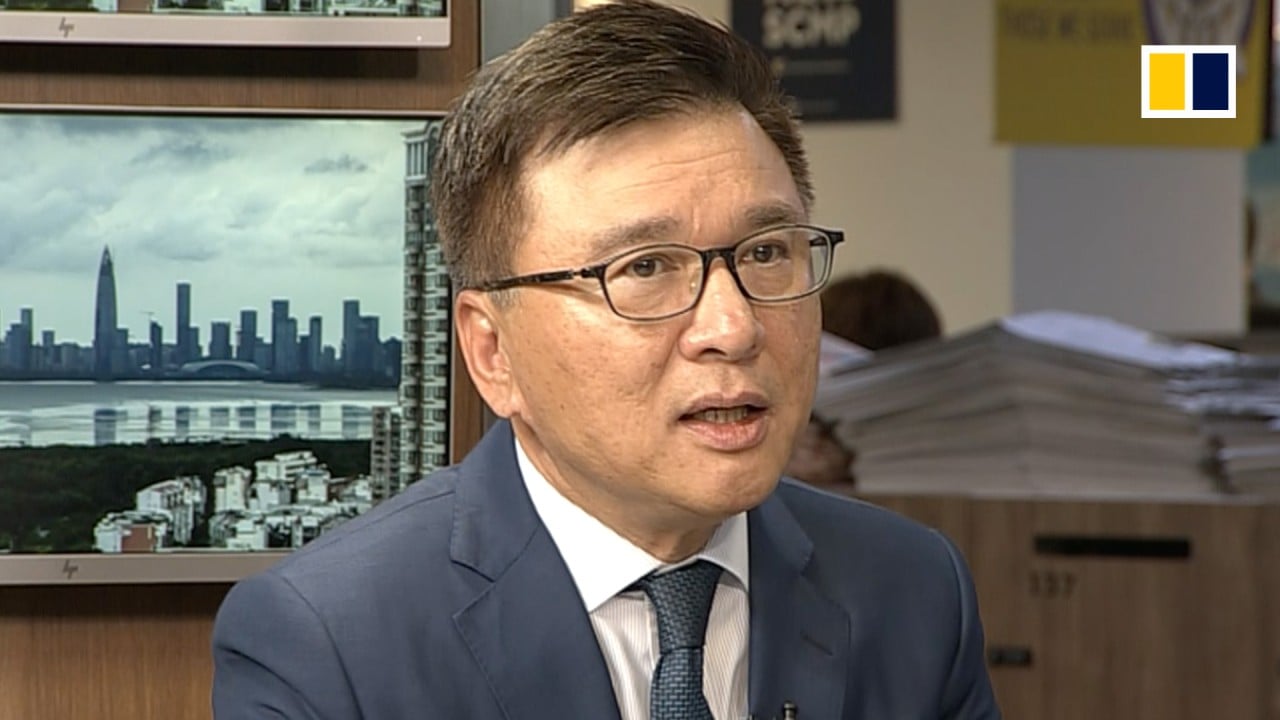
Hong Kong-listed ETFs expected to benefit from Greater Bay Area growth, upcoming connect scheme
- Investors can use ETFs to invest in mainland China with Hong Kong serving as the ideal location to develop these products, Mirae’s Hong Kong CEO says
- Talks on a planned ETF connect scheme between Hong Kong and mainland China have stalled because of technical issues
Seoul-headquartered Mirae Asset Global Investments, the largest ETF issuer in Asia excluding Japan by global assets according to research firm ETFGI, is among those expecting opportunities to arise in Hong Kong.
The company will broaden its Hong Kong-listed ETF range next year with new asset classes and investment strategies, said Rhee Jung-ho, president and chief executive officer of Mirae Asset Global Investments (Hong Kong).

Over 143 ETFs are listed on the Hong Kong stock exchange and have a market cap of about HK$400 billion (US$51. 4 billion). The average daily turnover of ETFs in the first nine months of 2021 was HK$6.7 billion, 31 per cent more than a year earlier, according to exchange data.
Mirae’s top-performing ETF in the past two years is an ETF that tracks electric vehicle and battery-related stocks in China.
“Overall, our ETFs that track stocks in themes such as clean energy and semiconductors as well as our environment, social and governance (ESG)-related products are expected to do well in the coming years,” Rhee said.
The company is part of the wider Mirae Asset Financial Group, which was founded in 1997. After introducing the first mutual funds to retail investors in South Korea, the group grew both organically and through a number of mergers and acquisitions. The group is now one of the largest financial groups in Asia with total assets under management of US$560 billion as of June, with operations in 15 markets. It entered Hong Kong in 2003, using it as a base for its Asian development and expansion.
Hong Kong’s ETF market lags the wider region. EFTs in the city have grown 1.4 times over the last five years, substantially lower than 11 times in Taiwan, four times in Japan and three times in South Korea, according to ETFGI.
Rhee said that Hong Kong’s ETF market is yet to realise its full potential, as it is not fully developed.

On China’s regulatory crackdown on the tech and private education sectors, Rhee said Mirae’s international clients are taking a long-term view of the market. The regulatory reform may lead to short-term volatility, but they can bring healthy economic and social development in China, he said.
HKEX waives ETF fees to spur growth of fixed-income products
Sally Wong, chief executive of Hong Kong Investment Funds Association, said that if Hong Kong and the mainland can implement the long-awaited ETF connect scheme for cross border trading of ETF, it will be a catalyst for rapid growth of the ETF market.
However, a proposed ETF scheme has yet to be realised. Talks between Hong Kong and mainland Chinese securities have not made any progress since January last year, as both sides must still overcome some technical issues that have impeded the development of the scheme.
While regulators introduced a cross-listing scheme for ETFs in mid-2020, Wong said it was not as convenient as an ETF connect scheme.

05:48
Start-ups in the Greater Bay Area should use Hong Kong as a gateway to global markets
“ETFs have huge potential as they provide a cost-effective vehicle for mainland investors to gain exposure to overseas markets, and at same time allow overseas investors to access the mainland markets,” Wong said.
Robert Lee, chairman of Hong Kong Securities Association, said Hong Kong investors preferred stocks to ETFs as they were a passive investment product.
“However, an increasing number of people were choosing ETFs in their Mandatory Provident Fund choice, which would boost the growth of ETFs in the city,” he said.

